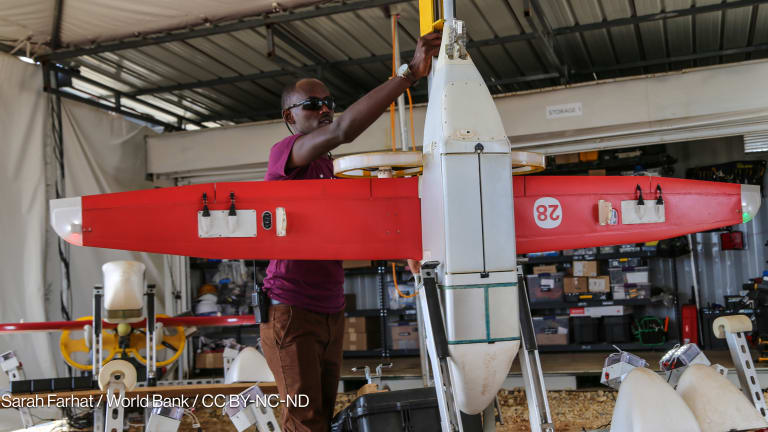
President Trump swaps Rex Tillerson for Mike Pompeo as U.S. secretary of state, China plans a foreign aid agency, and Latin America’s leaders ask what to do about Venezuela’s crisis. This week in development.
President Donald Trump upended America’s foreign policy leadership Tuesday when he announced — via tweet — the replacement of Rex Tillerson as secretary of state with Mike Pompeo, currently the director of the Central Intelligence Agency. Pompeo is known for holding harder-line views on foreign policy issues — including his opposition to the Paris Agreement on climate change — and for having a closer relationship with Trump than Tillerson ever managed to develop. U.S. secretaries of state have pursued different levels of oversight and involvement in U.S. global development efforts. Some of them have sought to consolidate power in the State Department, while others have left development decision-making to the U.S. Agency for International Development. It is too early to predict how Pompeo will shape the relationship between State and USAID, development leaders told Devex, but many of them were happy to see Tillerson replaced with someone they expect will be more assertive in defining and defending a role for America’s diplomats and development professionals. Tillerson’s firing came immediately on the heels of his multi-country trip to Africa, where he sought to patch up relationships with countries spurned by Trump’s rhetoric and immigration policies — and to describe the administration’s approach to engaging with the continent. Many felt the timing of Trump’s sudden and public announcement undercut whatever message of partnership Tillerson sought to project. Since Nikki Haley, U.S. ambassador to the United Nations, has already wrangled significant foreign policy power away from the State Department, U.N. experts do not expect Tillerson’s removal to have significant implications for U.S. involvement in the multilateral system.
China announced plans to create a new foreign aid agency, which will serve as the country’s development policy and grant-making center and will aim to support President Xi Jinping’s massive Belt and Road infrastructure and development initiative, Reuters reported on Monday. Aid experts have long-sought to better understand how Chinese foreign aid functions — and how much official development assistance the emerging donor is actually contributing. The new agency arrives at a time of increasing attention to Chinese soft power, particularly in Africa, where Beijing has so far leaned mostly on loans and export credits to build a massive infrastructure development footprint.
Days before Trump announced his foreign affairs reshuffle, the State Department lifted the hiring freeze that had forced USAID job candidates into limbo for months and had required the agency to request exemptions from the State Department to fill critical positions. In a letter to USAID Administrator Mark Green, which Devex obtained, Deputy Secretary of State John Sullivan instructed that, “while the Secretary appreciates your desire to align on hiring decisions, moving forward USAID should initiate its own hiring processes to accommodate the Agency's staffing needs." USAID will continue to convene a hiring review board in order to ensure that hiring decisions coincide with agency-wide funding levels and needs, Devex has learned. The agency intends to open some of the Foreign Service positions that it was previously barred from filling.
Leaders in Latin America gathered this week in São Paulo, Brazil, at the World Economic Forum on Latin America, against the backdrop of a region on the brink of political and economic change. With about a dozen elections this year and next, and growing inequality giving rise to anti-establishment candidates, the future is uncertain. Discussions focused on leadership, the evolving nature of work, economic growth, and the roles that civil society, the private sector, and governments must play to tackle inequality, finance the Sustainable Development Goals, and fulfill the Paris Climate agreement. A new Tech for Integrity platform — a partnership between WEF, Citi, the Inter-American Development Bank, Transparency International, and others — was launched to accelerate anti-corruption efforts. There have been conversations about the education and training required for future business needs, creative ways to finance the SDGs, and a panel discussion, led by Devex Associate Editor Adva Saldinger, about migration in Latin America and the necessary responses to the worsening humanitarian crisis in Venezuela.








